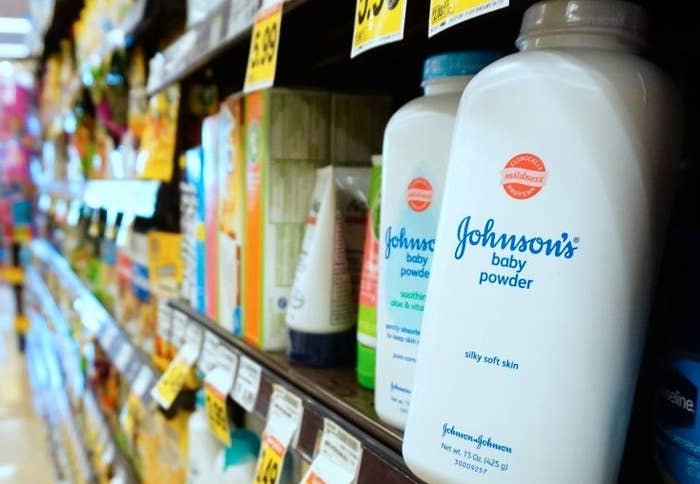
Johnson & Johnson announced a recall of some 33,000 bottles of its Johnson’s Baby Powder on Friday, after FDA tests detected asbestos in a single bottle of the product bought online.
People who own a bottle of Johnson's Baby Powder from Lot #22318RB should stop using it, Johnson & Johnson Consumer Inc. (JJCI) said in a release announcing the recall and refunds.
"The FDA stands by the quality of its testing and results and is not aware of any adverse events relating to exposure to the lot of affected products," agency spokesperson Gloria Sánchez-Contreras said in a statement emailed to BuzzFeed News.
The company is facing lawsuits from thousands of women, many of whom have claimed that Johnson & Johnson’s talcum products contributed to their cancers. In one historic decision last year, a jury awarded $4.69 billion to 22 women and their families. The women had claimed that their ovarian cancer was linked to asbestos contamination in the company’s powder and talc products.
Soft, powdered talc absorbs moisture and is used in a range of cosmetics, from eye shadow to baby powder. Talc can be contaminated with asbestos because deposits of both of the naturally occurring minerals can occur close to each other underground.
The WHO’s International Agency for Research on Cancer considers all forms of asbestos carcinogenic to humans and has said the mineral causes cancers of the lung, larynx, and ovaries, as well as mesotheliomas, which are cancers that develop in the inner lining of tissue surrounding some organs. Because of this risk, the FDA recommends frequent testing of talc products, as well as inspecting talc mining sites to avoid contamination.
Johnson & Johnson has argued that they take thorough steps to screen for talc that’s tainted with asbestos. “JJCI has a rigorous testing standard in place to ensure its cosmetic talc is safe and years of testing, including the FDA's own testing on prior occasions--and as recently as last month--found no asbestos,” the company said in its Friday release.
But the New York Times reported last year that Johnson & Johnson executives had for years discussed possible asbestos contamination in its powder and talc products in internal company memos. Company chiefs were worried that the Johnson’s Baby Powder brand would be tarnished, and were concerned about a government ban on talc, the report said. Over decades spanning the 1970s to 2000s, the company’s raw talc and products sometimes tested positive for asbestos, Reuters reported in December, citing company documents produced in litigation.
The link between asbestos-free talc and ovarian cancer is less clear, according to the American Cancer Society (ACS). Findings from many studies in women have been mixed, “with some studies reporting a slightly increased risk and some reporting no increase,” the ACS states.
Johnson & Johnson in the past has denied that its products contain asbestos and dismissed the claims of a cancer link as “junk science.”
“JJCI has immediately initiated a rigorous, thorough investigation into this matter, and is working with the FDA to determine the integrity of the tested sample, and the validity of the test results,” the company said Friday.
UPDATE
This post has been updated to add a comment from the FDA.
